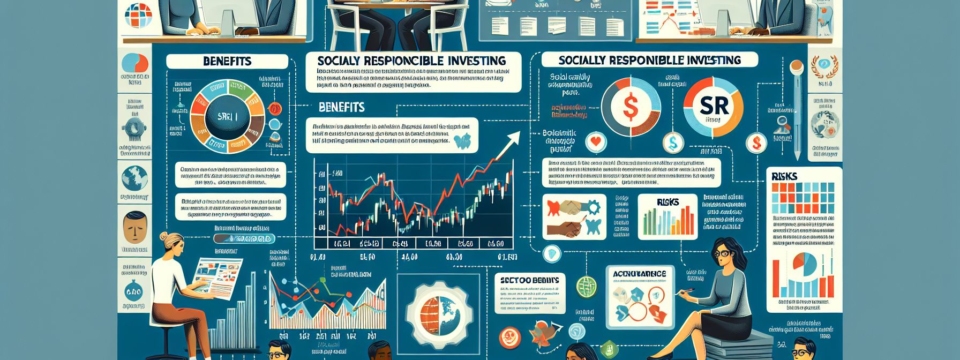In the world of active trading, it can often feel like investment choices are solely determined by potential for financial returns. But an emerging trend called Socially Responsible Investing (SRI) is shifting this notion. SRI combines the drive to produce financial gains with the desire to foster positive social and environmental change. But how does it work, and how can active traders take advantage of it? This article will explore the concept of SRI, its unique advantages and potential challenges in the world of active trading.
What is Socially Responsible Investing?
Socially Responsible Investing (SRI) is an investment strategy that considers both financial returns and ethical or social impacts. This includes ecological sustainability, social justice, and corporate governance. Instead of focusing singularly on profit, SRI investors select investments that align with their personal values and contribute to the betterment of society.
For active traders, engaging in SRI is about balancing profitability with morality – being able to achieve financial gain without undermining important social and environmental principles. This might involve investing in companies with strong environmental policies, for example, or in industries that promote social equality.
The Benefits of SRI
There are several reasons why active traders might choose to engage in socially responsible investing. One is the potential for better long-term performance. A 2019 study by the Global Sustainable Investment Alliance found that sustainable investing assets reached $30.7 trillion, a 34% increase in two years, demonstrating ongoing investor interest in aligning investment with ethical concerns.
Another benefit of SRIs for active traders is that they offer an expanded pool of potential investments. By considering social and environmental impacts alongside financial results, you open up new prospects that might otherwise have been overlooked. You may also benefit from tax incentives, subsidies, and grants for investing in certain areas, such as green technologies or sustainable agriculture.
Moreover, by taking on an SRI strategy, active traders can demonstrate their corporate social responsibility, which could make them more appealing to a certain segment of population who care about the ethics and values of the companies they engage with.
The Challenges of SRI
Although SRI offers some notable advantages, there are also challenges to be aware of. One of the main criticisms of SRIs is that by limiting investment options to only socially responsible companies, investors might limit their ability to diversify and may miss out on potentially lucrative opportunities.
Another challenge is defining what constitutes a ‘socially responsible’ company. What one investor might consider socially responsible, another might not. Assessing a company’s social responsibility is not a simple task and often involves investigating a company’s policies, practices and history.
In addition, the cost of investing in SRIs may be higher due to more extensive due diligence that needs to be carried out to ascertain the social and environmental credentials of a potential investment.
Conclusion
In summary, for active traders looking to make a positive difference while striving for profitable outcomes, Socially Responsible Investing can be an appealing option. They represent an opportunity to align personal values with investment strategy, possibly reap profitable returns, and engage with a larger, ethically minded investor base.
However, doing so comes with its own set of challenges. Investors must weigh the advantages against potential limitations and higher investment cost. Despite these challenges, it is clear that SRI is gaining traction in the financial world – an encouraging sign for those who believe that profitability and social responsibility need not be mutually exclusive.
At the end of the day, the decision to engage in SRI lies with individual investors. However, as more and more traders begin to prioritize social and environmental responsibility, we could see SRI becoming a standard part of investment strategies across the sector.
